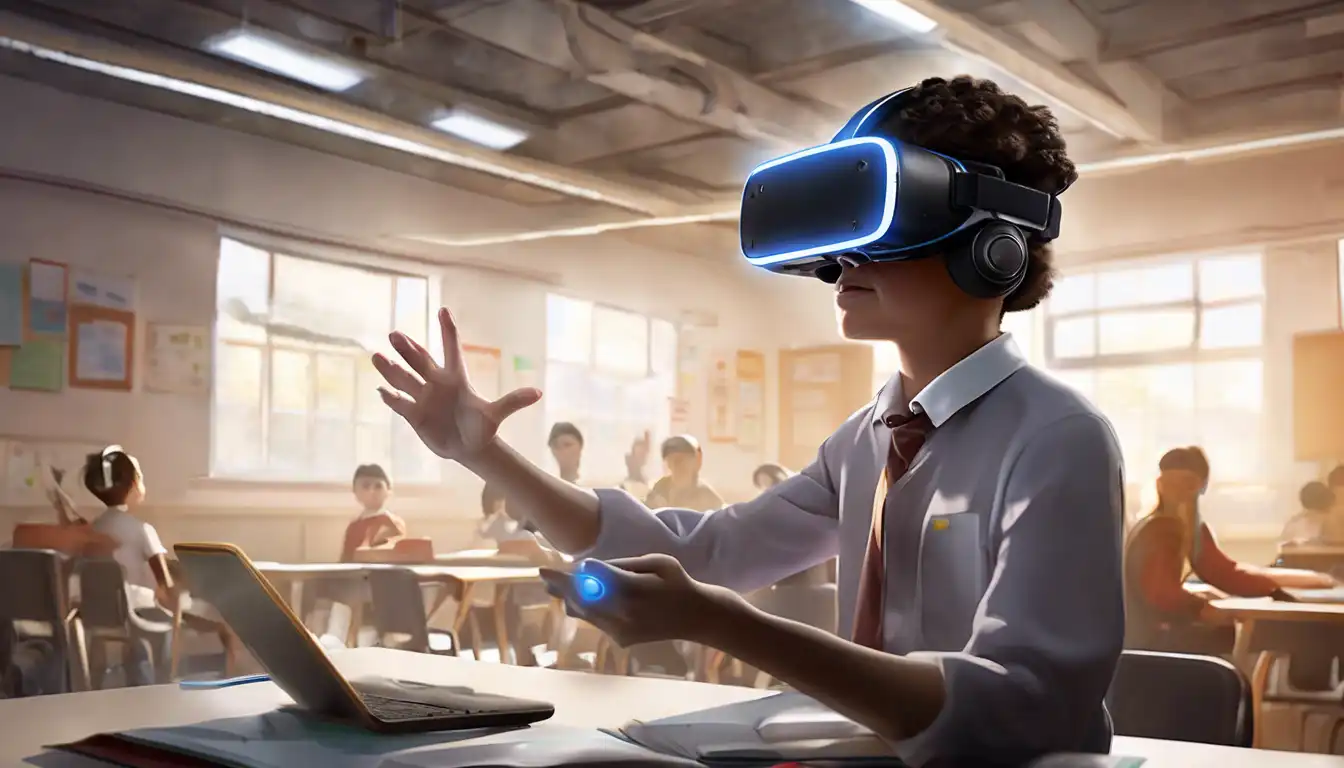The Transformative Impact of Virtual Reality on Learning and Development
Virtual Reality (VR) technology has been making waves across various sectors, and its application in education and training is proving to be a game-changer. By creating immersive, interactive environments, VR offers unparalleled opportunities for experiential learning and skill development. This article delves into the potential of VR in revolutionizing educational methodologies and training programs.
Why VR in Education?
VR in education transcends traditional learning boundaries, offering students a hands-on experience that was previously unimaginable. From exploring the human body in 3D to walking through historical landmarks, VR makes learning engaging and memorable. Studies have shown that immersive learning can significantly improve retention rates and understanding of complex subjects.
VR in Professional Training
Beyond the classroom, VR is transforming professional training across industries. For instance, medical students can perform virtual surgeries, reducing risks and improving their skills before stepping into an operating room. Similarly, VR simulations are being used for safety training in high-risk industries, allowing employees to experience hazardous scenarios in a controlled environment.
Benefits of VR in Learning and Development
- Enhanced Engagement: VR's immersive nature captures learners' attention, making education more interactive and fun.
- Safe Learning Environment: It provides a risk-free platform for practicing dangerous or expensive tasks.
- Accessibility: VR can bring distant or inaccessible locations and experiences to learners worldwide.
- Customizable Learning Experiences: Content can be tailored to meet individual learning styles and paces.
Challenges and Considerations
Despite its potential, the integration of VR in education and training faces hurdles such as high costs, technological limitations, and the need for specialized content creation. However, as technology advances and becomes more affordable, these challenges are gradually being overcome.
The Future of VR in Education and Training
The future of VR in education and training looks promising, with ongoing advancements in technology paving the way for more realistic and accessible virtual experiences. As educators and trainers continue to explore VR's capabilities, its role in shaping the future of learning and development is undeniable.
For more insights into innovative educational technologies, check out our article on The Role of AI in Personalized Learning.
